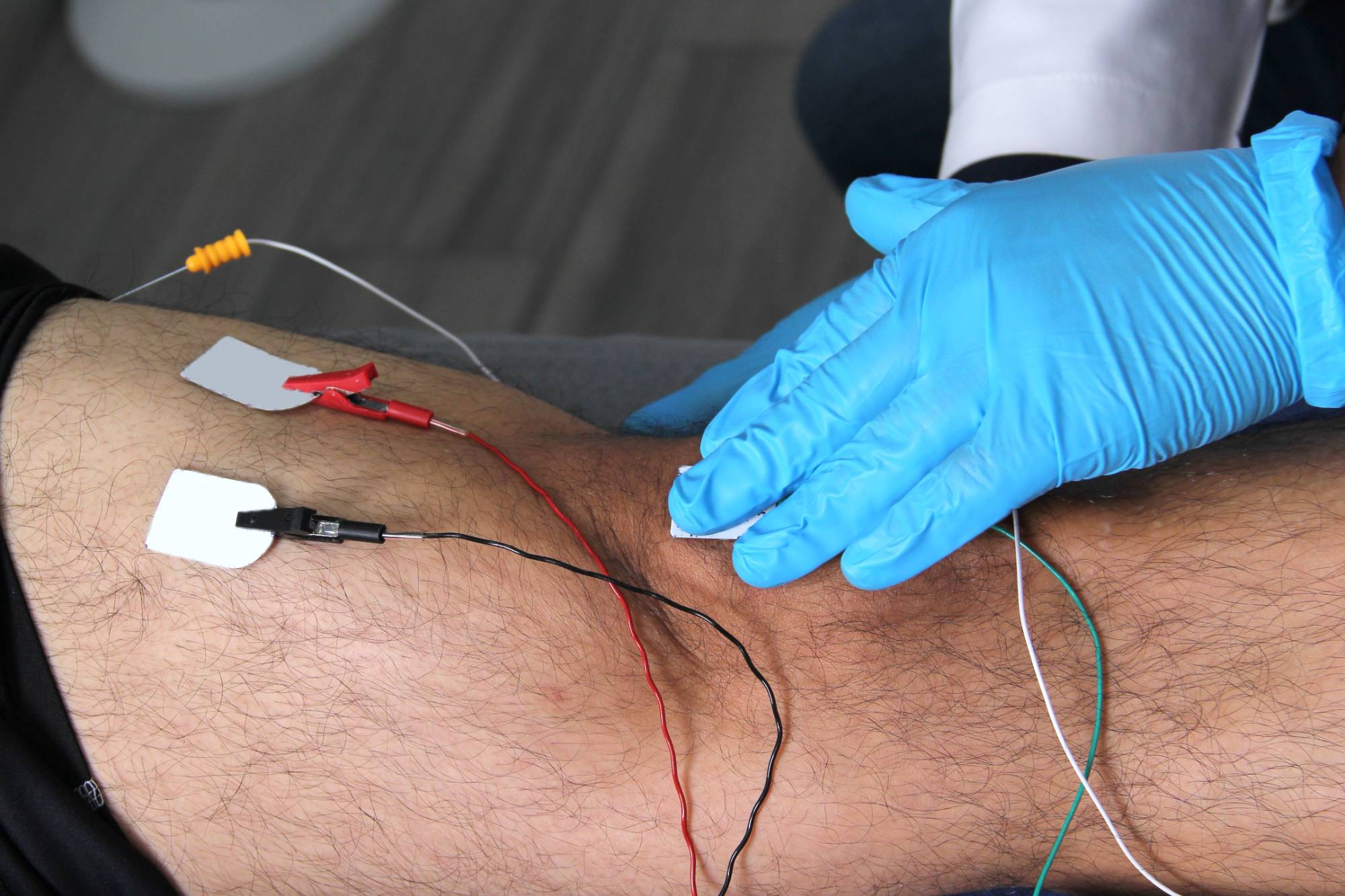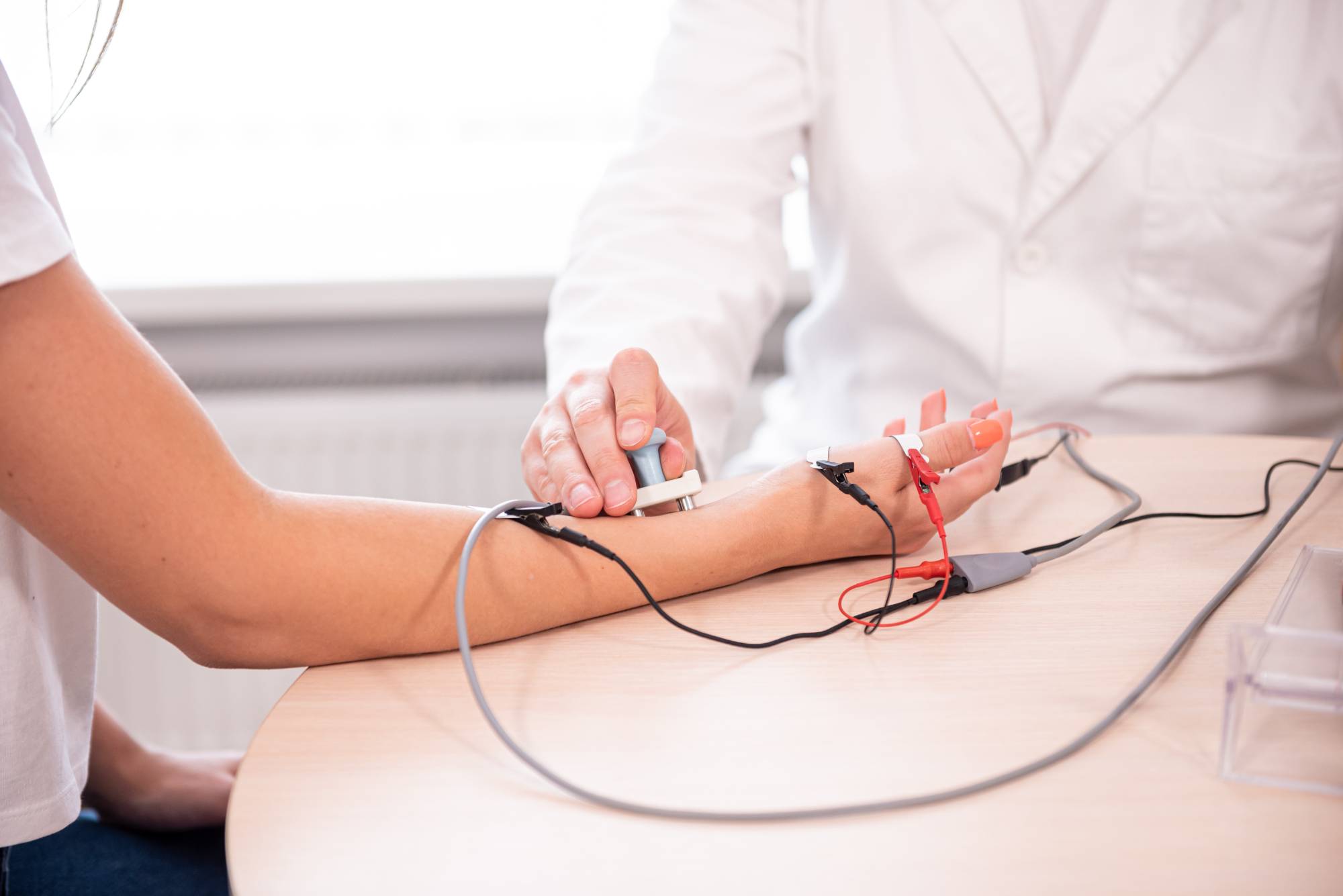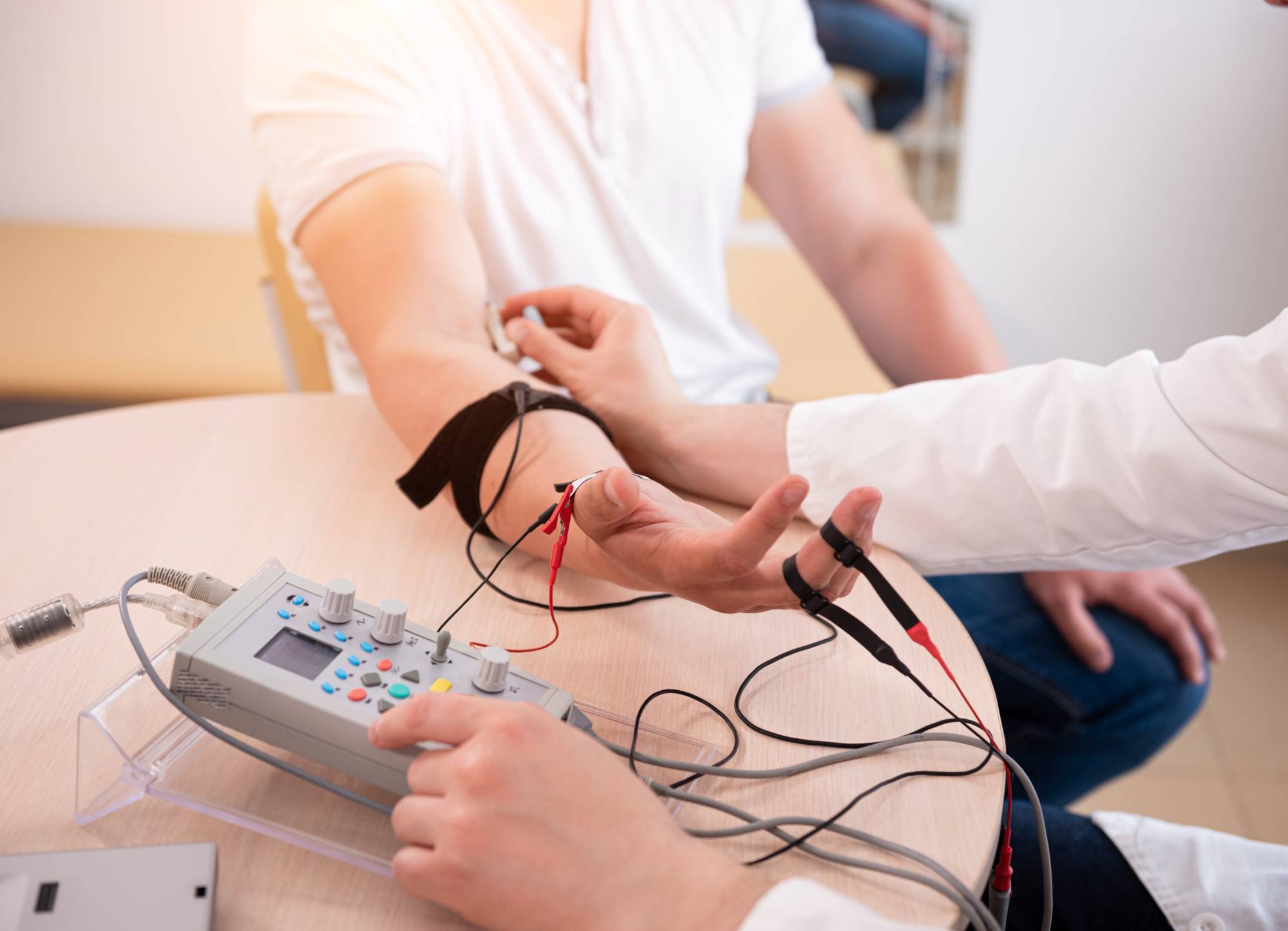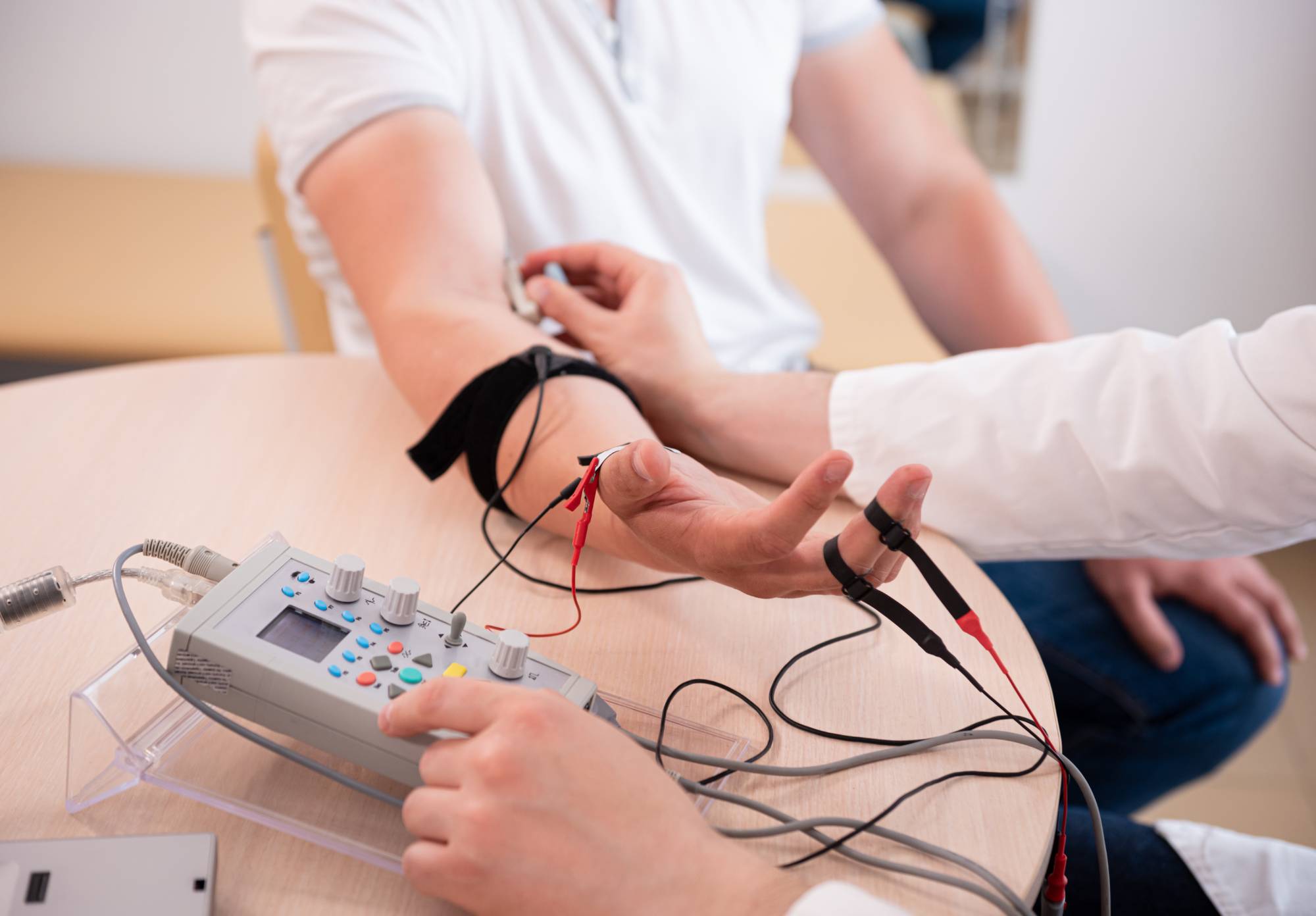Advanced electromyography testing that pinpoints exactly what’s causing your numbness, tingling, or muscle weakness.

Reviews

You’ve been dealing with symptoms that don’t make sense. Numbness that comes and goes. Muscle weakness that’s getting worse. Tingling that keeps you up at night.
EMG testing gives you the diagnostic clarity you need. Within minutes, we can measure how well your nerves and muscles are communicating. You’ll know if that persistent numbness is carpal tunnel syndrome, if your back pain involves nerve compression, or if your muscle weakness points to something more serious.
No more guessing. No more wondering if you’re imagining things. Just clear, measurable data about what’s happening in your body and what you can do about it.
We’ve been serving Glendale and the greater New York area with advanced diagnostic testing for over a decade. Our board-certified specialists focus exclusively on spine and nerve-related conditions.
We’ve performed thousands of EMG and nerve conduction studies. Our team understands that you’re not just looking for test results—you’re looking for answers that lead to real solutions.
Every test is interpreted by our experienced physicians who can explain your results in plain English and connect you with the right treatment options.

Your EMG test starts with a brief consultation about your symptoms and medical history. We’ll explain exactly what we’re testing and what you can expect.
During the nerve conduction study portion, small electrodes are placed on your skin to measure how quickly electrical signals travel through your nerves. This part feels like mild static electricity and takes about 15-20 minutes.
The electromyography portion involves inserting very thin needles into specific muscles to measure their electrical activity. While this sounds uncomfortable, most patients describe it as similar to acupuncture. The entire process typically takes 45-60 minutes, and you’ll receive your results immediately after testing.

Ready to get started?
Your EMG testing appointment includes both nerve conduction studies and electromyography to give you a complete picture of your nerve and muscle function. We test multiple nerve pathways to identify exactly where problems are occurring.
You’ll receive detailed results interpretation from our spine specialists, not just raw data. We explain what your findings mean for your daily life and what treatment options make sense for your specific situation.
All testing is performed using advanced diagnostic equipment that meets the highest medical standards. Your results are immediately available to share with your referring physician or to guide treatment planning at our facility.

New York:
Florida:
Support